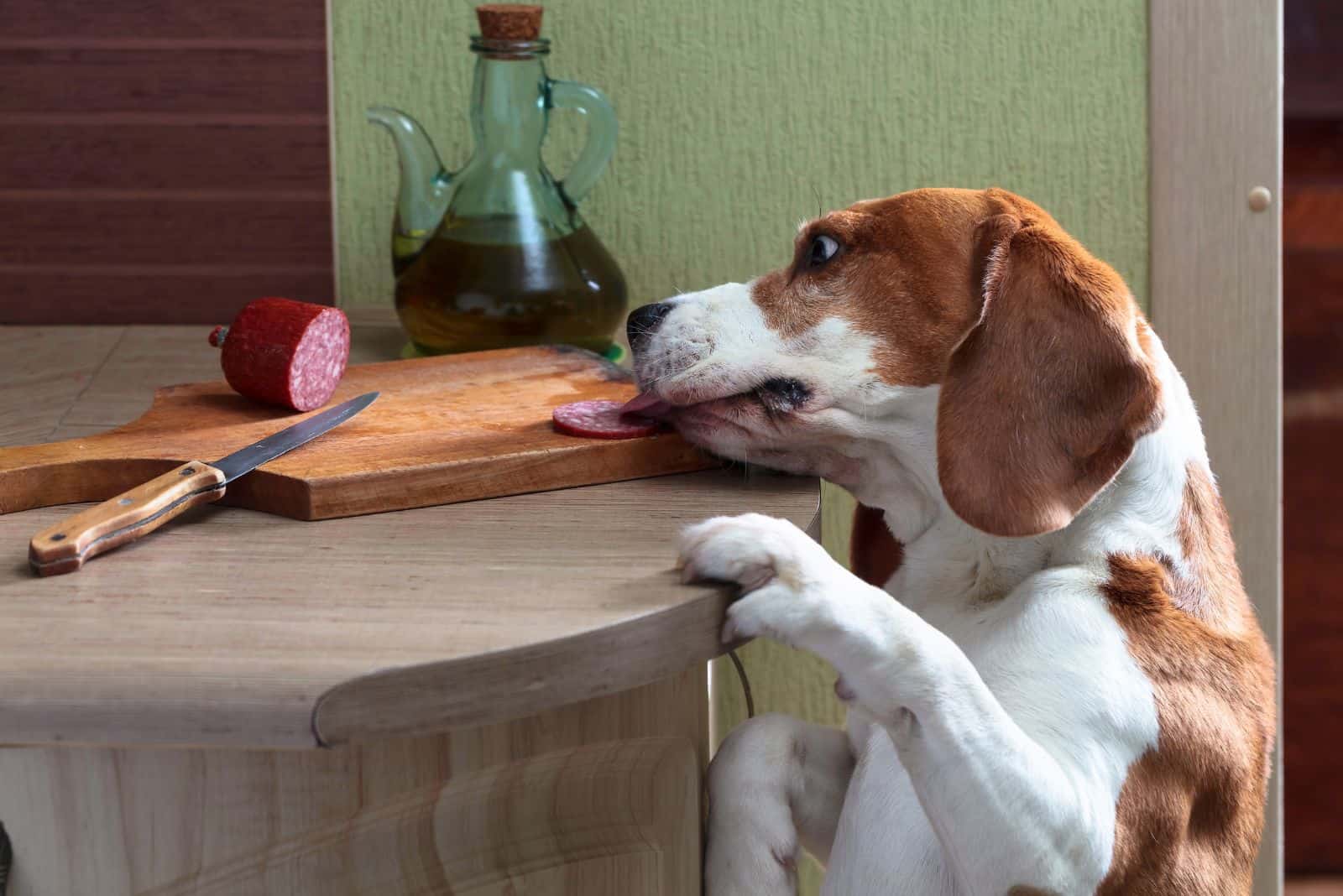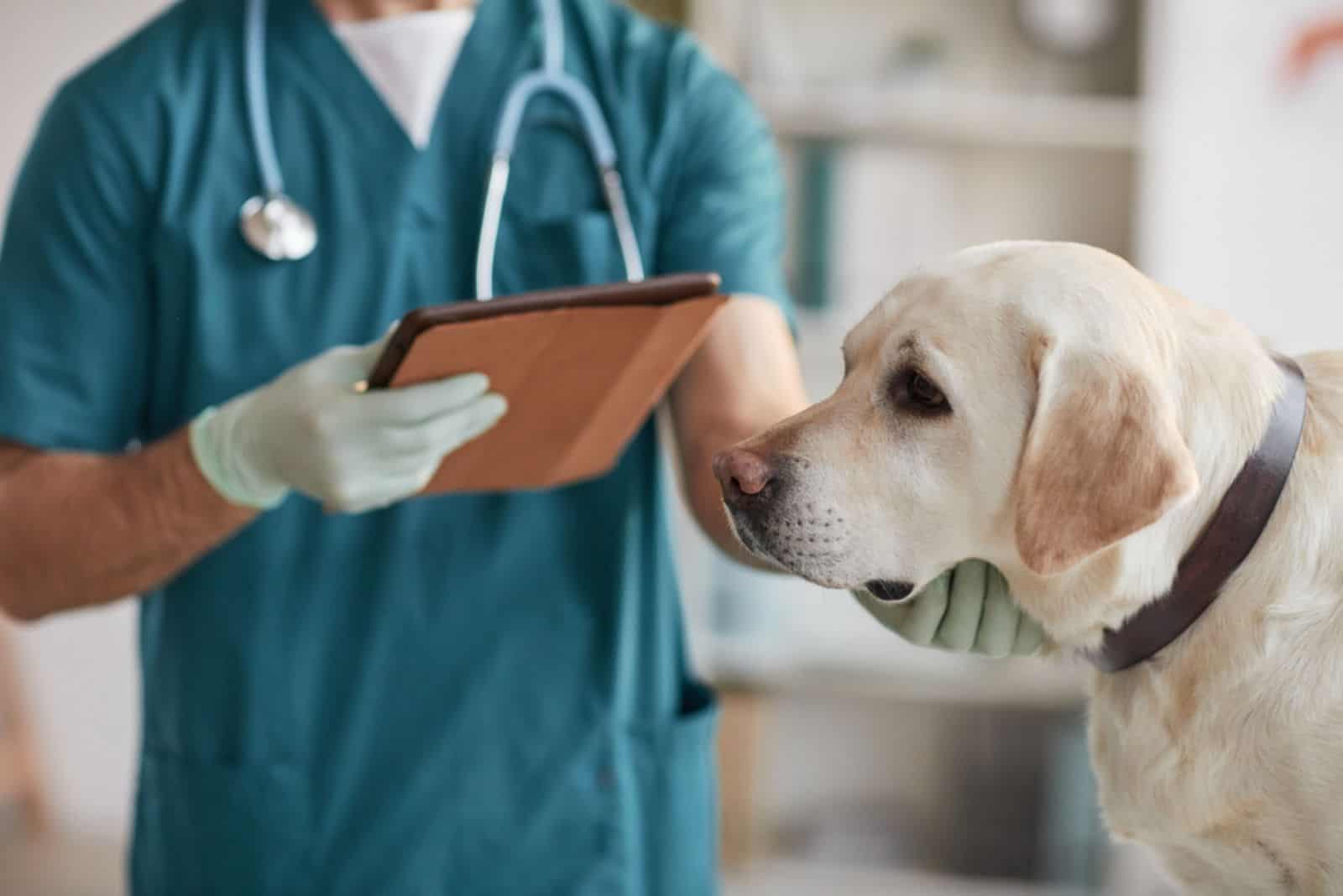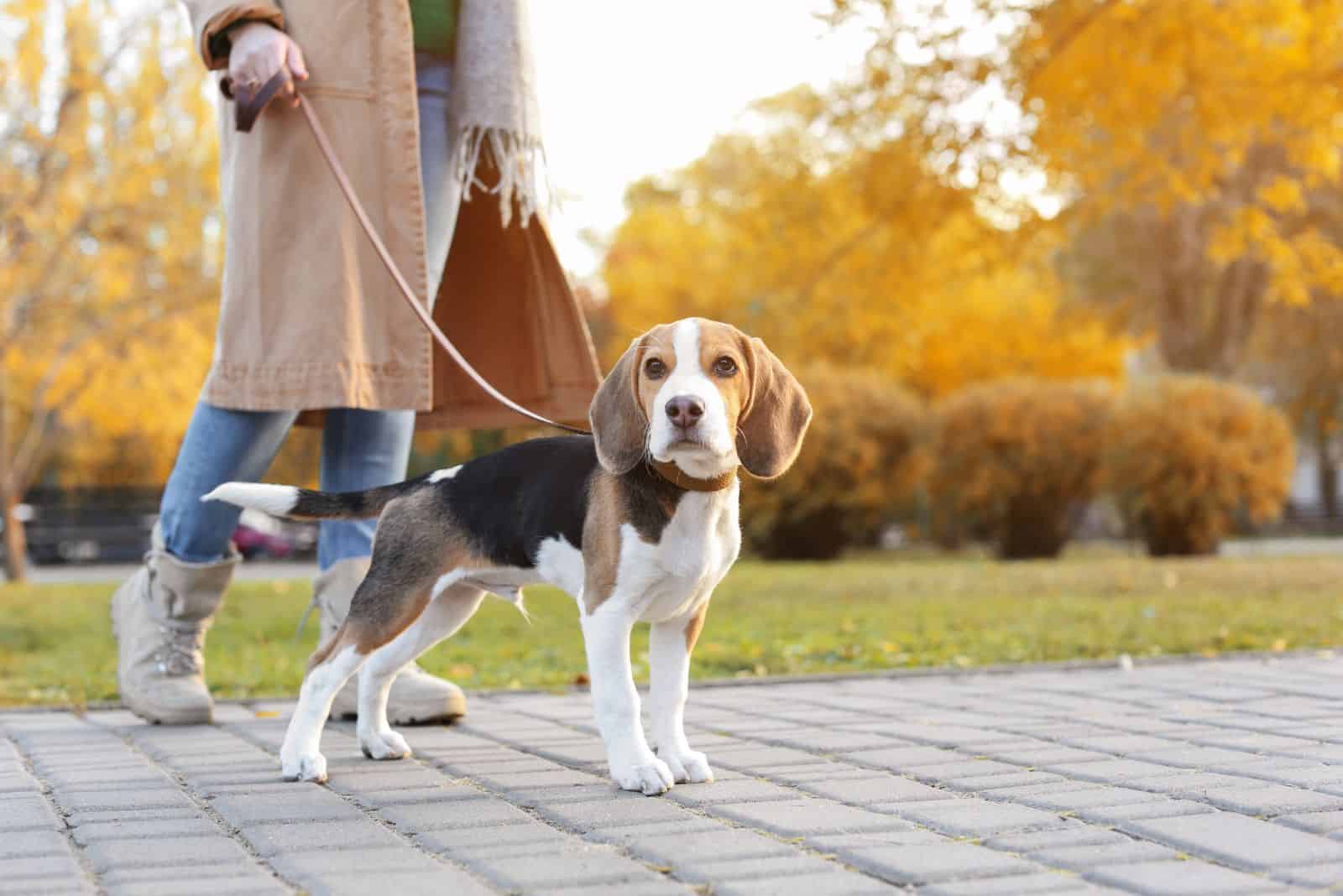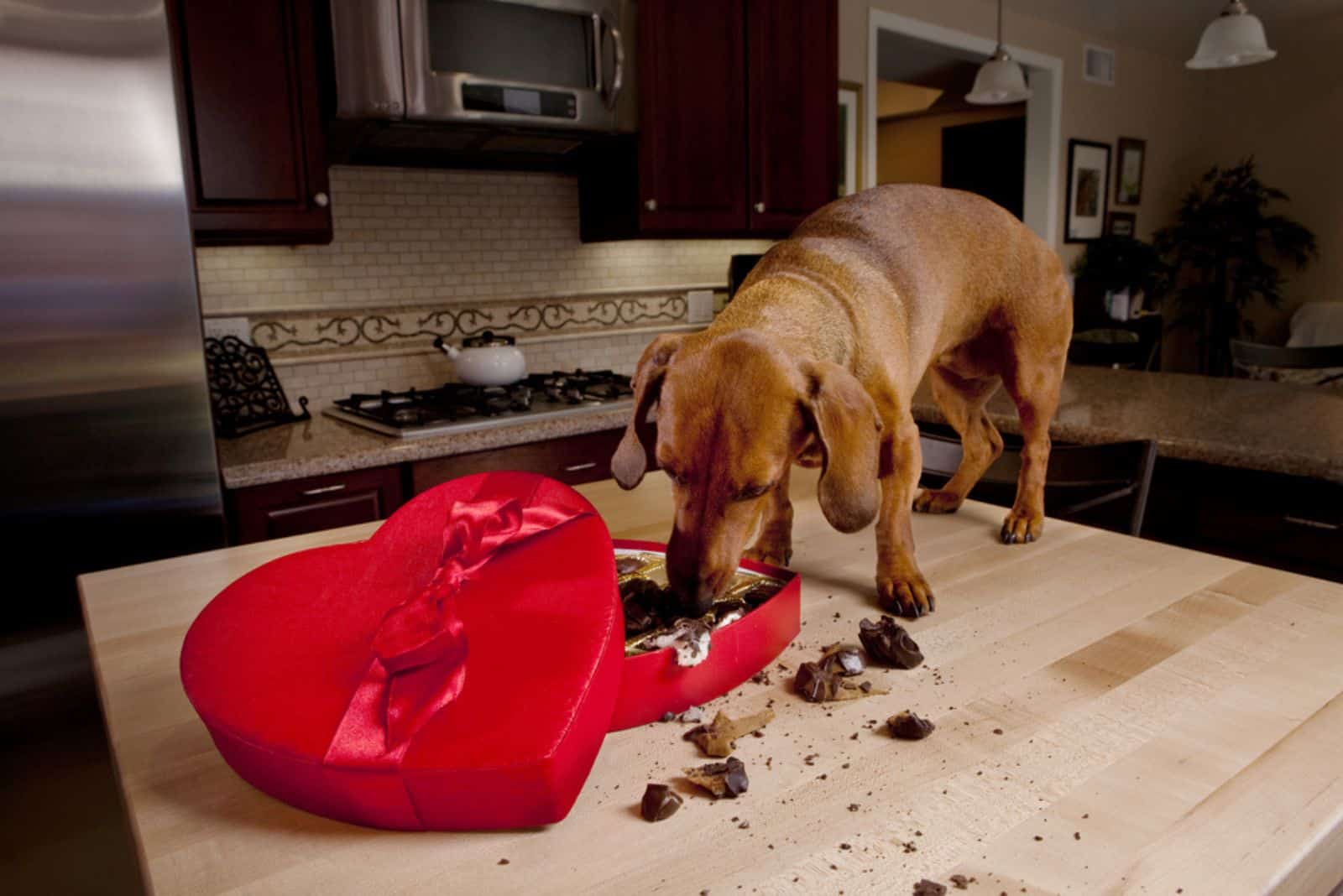Xylitol is a sugar alcohol that can be found in some herbs, fruits, and vegetables. Also, there are some products that contain xylitol – because this sugar alcohol can be used as a substitute for sugars and carbohydrates.
So, there is a high chance that all of us have some of these products in our homes. Products containing xylitol are completely harmless for humans, but, have you ever wondered if xylitol is dangerous for your furry companion?
We all know that dogs are not supposed to eat human food. There is nothing in our food that a dog needs; this is more of a routine of all dog owners, since we hate to say no to our dogs’ cute faces when they watch us while we eat.
And, in some cases, we don’t even have to give our food to our dogs; many of them will find a way to get our food by themselves.
So, should you be worried if your dog has licked, sniffed, or swallowed some product that contains xylitol? Let’s find out.
What Are Some Products That Contain Xylitol?

Xylitol kills bacteria, so it can be found in products for teeth health, such as mouthwash or chewing gums that are sugar-free.
Also, toothpaste for humans might also contain xylitol.
Furthermore, xylitol can be found in chocolate, candies, diet ice cream, peanut butter, and low-fat yogurt, as well in sugar-free yogurt.
Xylitol is also used to season various sauces, such as mustard, ketchup and mayonnaise. Also, some sausages and salamis may also contain xylitol.
Xylitol can be a great replacement for white sugar, and it is not toxic for humans. But, is it safe for dogs to consume products that contain xylitol?
Is Xylitol Dangerous For Dogs?
Dog’s organism is very different from ours. So, if something is completely safe for us, this does not have to be the case for our dogs. For example, you might adore eating spicy food, but you should not give your dog spicy food, because it might cause an upset stomach in them.
So, though xylitol is perfectly safe for humans, it is not safe at all for dogs. Even a small amount of xylitol can be dangerous for our canines.
According to the Pet Poison Helpline, during 2020, xylitol poisoning in dogs was on the second place on the list of the most frequent dogs poisoning, right after the chocolate poisoning.
Many dog owners have not even thought that xylitol might be poisonous for their furry friends, but, obviously, this is a very serious matter, and something all dog parents should know more about.
Xylitol consummation can cause hypoglycemia in dogs, which can lead to liver damage, if it is not treated on time.
Unfortunately, xylitol consumption in some cases can even be life threatening for dogs.
So, products that contain xylitol should by no means be reachable for your dog. If you think that a small amount of this sugar alcohol cannot be fatal for dogs, let me explain one thing.
If your dog consumes more than 0.5 grams of xylitol per two pounds of his body weight, there is a high risk of damage to his liver. So, even the consumption of just one biscuit containing xylitol can be fatal for your dog’s health.
Of course, this does not mean that I think that any dog owner would give such products to their pet – but, we all know how resourceful they are and how they can get hold of almost all food products in our home.
What Harm Can Xylitol Cause In Dogs?

Xylitol not only causes hypoglycemia in dogs, but can cause fatal liver damage. Xylitol does not cause a sudden release of insulin in humans, and is therefore safe for us to consume.
However, the situation is not the same with dogs. Xylitol dissolves quickly in the dog’s body, causing various disorders.
So, the consumption of xylitol in dogs will cause a much greater secretion of insulin, which means that the dog will experience a sudden drop in blood sugar.
If you notice your dog has consumed xylitol, but does not have any symptoms yet, you should take him to the vet’s right away. Your vet will try to make your dog throw up, to prevent further xylitol absorption.
What Are Symptoms Of Xylitol Poisoning In Dogs?
If your dog has consumed xylitol, you will probably notice the first symptoms in 10 to 20 minutes.
Some of the first symptoms visible in dogs are vomiting, lethargy, and weakness. Also, a dog might breathe fast and even become powerless to control his own movements.
Dogs will be very confused, and some of them might get seizures, or even lose consciousness.
These symptoms will usually appear soon after your dog has swallowed something that contains xylitol.
However, some dogs will show first symptoms hours after the xylitol consummation.
Of course, you need to react right away. As soon as you get your dog to the veterinarian clinic, there is a bigger chance that your dog will recover.
If this situation occurs, you need to be lucid enough to explain to your vet that you think your dog might have xylitol poisoning. Furthermore, you will need to inform your veterinarian about all the food your dog has eaten that day, and all the symptoms you have noticed.
How To Prevent Xylitol Poisoning In Dogs?

Are there ways to prevent our dogs from xylitol poisoning?
The first thing you should do is to carefully read the labels on all products you bring to your home. Also, always keep chewing gums, sweets, and your toothpaste away from your dog.
But, be careful here – it is not enough just to put your toothpaste on a higher shelf in your bathroom. You need to put the products that contain xylitol away from your dog for good; so, keep them in a cabinet whose door will always be closed, and which your dog cannot reach.
Of course, you probably cannot be with your dog all day long, and you cannot be sure what he will sniff when you are not home.
So, the only thing you can do here is to keep the things your dog should not touch in a safe place, away from your curious pooch.
Another thing to bear in mind is to supervise your dog while walking with him. A walk is all dog’s favorite activity to sniff around.
You should always keep your dog on a leash during a walk, and be prepared to pull him, if you notice he is sniffing around garbage or anything that looks potentially dangerous.
Also, please do not share your food with your dog. You should not give your dog table scraps, not even a little bit of them, because, as I have already mentioned, xylitol does not only appear in sweets and in chewing gums – some salami and sauces might also contain xylitol.
None of us would like to think of when to euthanize a dog with liver failure; xylitol consumption in dogs can lead to such a fatal outcome, so, please do your best to prevent your dog from consuming a product containing xylitol.
I will just mention one thing more. Brushing your dog’s teeth regularly is a must to prevent tartar buildup and any other dental issues in your dog.
If you are taking care of your dog’s dental hygiene, well done! But, please, never use our toothpaste with your dog. You should only use toothpaste for dogs. If you have any doubts about this matter, you can ask your vet for advice.
Final Words
We cannot protect our dogs from all things. As we could have seen, there are some threats to the health of our dogs that we may not even be aware of.
So, products that contain xylitol can cause severe health problems, and even a fatal outcome in our dogs. Therefore, all dog owners should ensure that any product that contains xylitol is out of their dogs’ reach.
Since xylitol is used in many products nowadays, it might sound like a mission impossible to protect your dog from consuming one of these products.
But, you need to take all precautions here. You should always read the labels on all food products, as well dental hygiene products you bring to your home.
If you find xylitol on the list of the ingredients, keep that product in a safe place where your dog will not be able to reach it.
If you notice symptoms in your dog that indicate he might have consumed a product that contains xylitol, take your dog to the vet’s right away. The sooner you react, the bigger the chance for your dog to fully recover.
